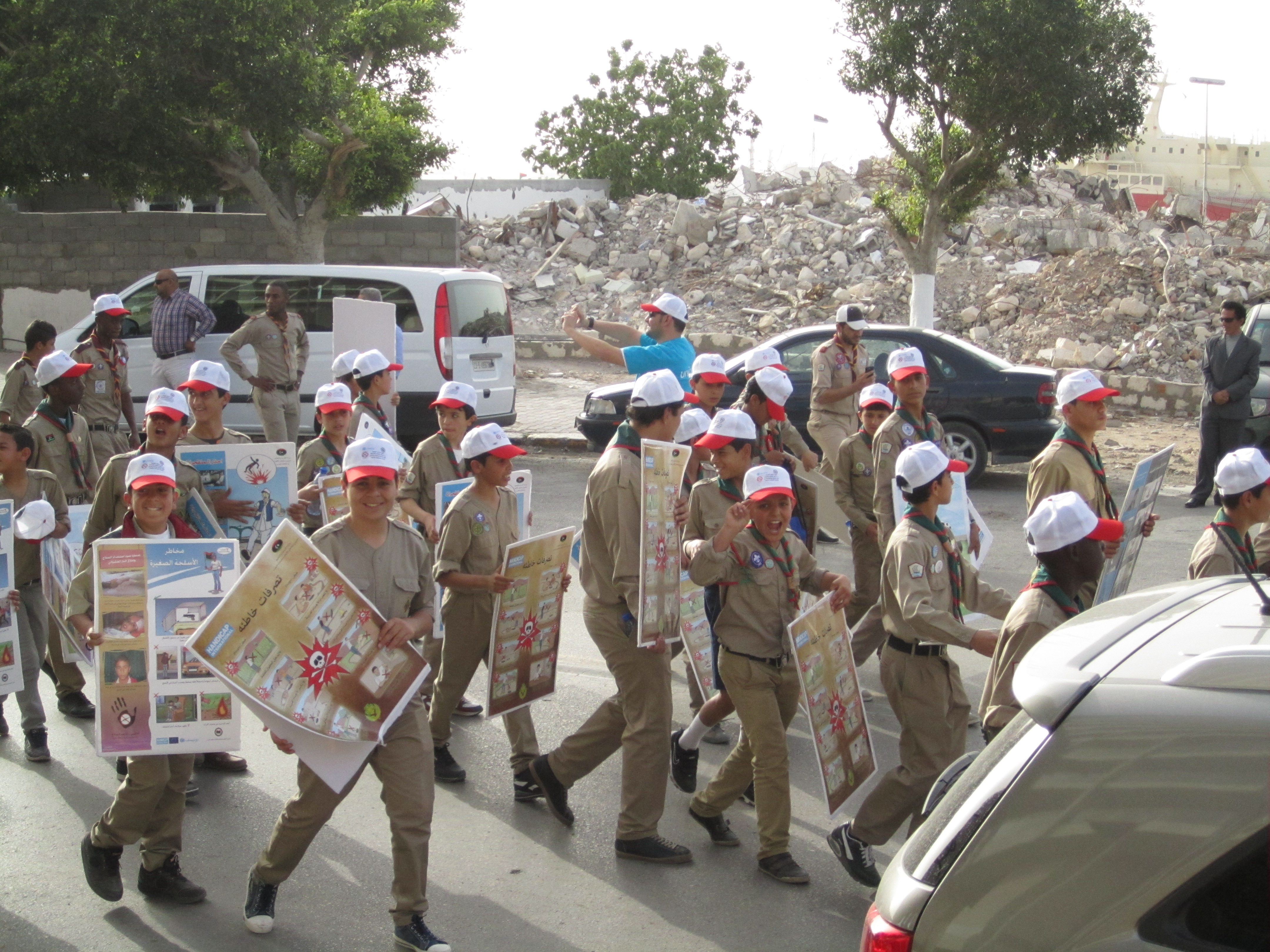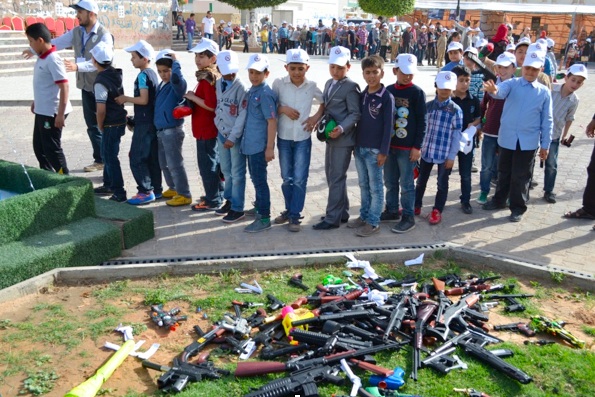Tripoli, 5 April 2013:

Libya marked International Day for Mine Awareness yesterday, Thursday, with events, including marches, performances and exhibitions, across the . . .[restrict]country.
Some 200 children, from the Scouts and local schools, gathered at Tripoli’s Al Gazella Square and, raising their banners and stopping the traffic, marched along the Corniche.
At the Radisson Blu hotel, where the march ended, there were speeches, including one by the Minister of Education, Ali Muftah Ebaid, and prayers, as well as a rendition of the National Anthem. There were also children’s performances and an art exhibition.
UNICEF’s country director, Carel De Rooy, told the Libya Herald that Libyans, supported by mine clearance NGOs, had cleared 165,000 explosive remnants of war over the last year and a half.
De Rooy said although there was still a lot of work to be done clearing unexploded ordinance and explosive remnants of war across the country, great progress had been made.
The International Day of Mine Awareness aims to raise knowledge and understanding of land-mines and the progress towards their eradication. The Tripoli events were led by the Ministry of Education, supported by The United Nations Children’s Fund UNICEF and international NGOs Handicap International, The Danish Demining Group and the Mines Advisory Group (MAG).
In Misrata, more than 2,000 adults and children attended an event to mark the day, which was organised by the Local and Military Council in Misrata in coordination with international NGOs, including DCA Mine Action, as well as local NGOs and schools.

The festivities included a symbolic disarmament campaign, organised by DCA, where 500 school children handed over their toy guns in exchange for boxes of Lego building bricks for their schools. DCA said this event, entitled ‘Child’s Play for a Country Free of Weapons,’ was for children to “disarm their minds” and start the process of changing perceptions and behaviour on gun ownership and use in Libya.
“The symbolic disarmament will spread an important message to Libyan citizens and the wider region by showing that their children are willing to give up their weapons to build a safer future for Libya,” said DCA’s coordinator for small arms and light weapons, Frederic Faust. “The Lego is an educational and playful material that will help children to focus on a different way to have fun with tools that are not related to violence.”
Faust added that the event provided the chance for children to give a good example to their parents and communities.
Children also participated in a drawing competition and music, which highlighted the dangers of mines, unexploded ordinance and small arms use.
UNICEF, along with UNMAS, has been supporting a government-led drive to raise awareness in schools about unexploded ordinance. “185,000 children have been reached directly, via trainers by this project,” De Rooy said, “and many more have been reached in indirect ways, through poster campaigns and cartoons in textbooks.”
He said UNICEF was now looking beyond mine-related risks because last year there were no reported deaths of children from unexploded ordinance.
“The risk is still there but we’re starting to look at other dangers, including small arms, fireworks and road traffic accidents,” De Rooy said, “because these are all areas where child deaths take place.” [/restrict]







